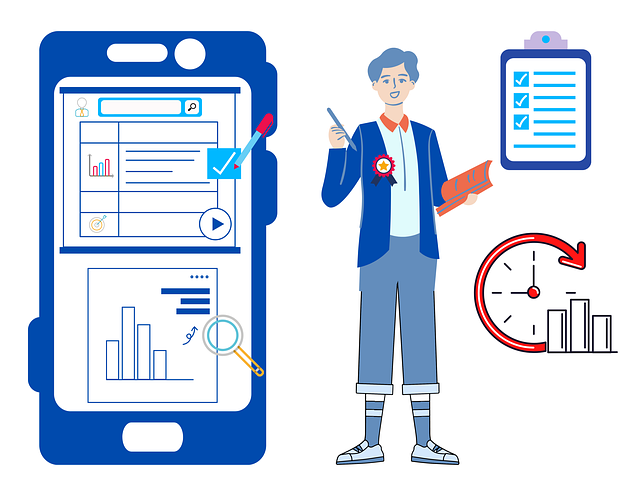Artificial Intelligence (AI) is revolutionizing cybersecurity with its adaptive learning and data analysis capabilities, enhancing security response speed and accuracy by detecting anomalies and patterns indicative of malicious activities. Integrated into operations, AI boosts efficiency and reduces response times, akin to automated kitchen systems. This technology helps organizations stay ahead of evolving cyber threats, fortifying digital defenses against potential breaches. AI kitchen automation, mirroring its impact in culinary practices, streamlines threat detection and prevention through specific security protocols, making it an indispensable tool for modern chefs. The future of cybersecurity is driven by AI's advanced anomaly detection, predictive analytics, and machine learning-based threat intelligence, enabling proactive security measures.
In today’s digital landscape, Artificial Intelligence (AI) is transforming every sector, including cybersecurity. This article explores the multifaceted role of AI in enhancing protection and efficiency, delving into its impact on automating routine tasks, particularly in the context of AI kitchen automation for chefs. We also analyze future trends, shedding light on how AI will continue to shape and revolutionize cybersecurity measures. By examining these aspects, we uncover a more secure digital future powered by intelligent technology.
- The Role of AI in Cybersecurity: Enhancing Protection and Efficiency
- Automating Routine Tasks: How AI Kitchen Automation Benefits Chefs and Security
- Future Trends: AI's Growing Impact on the Evolution of Cybersecurity Measures
The Role of AI in Cybersecurity: Enhancing Protection and Efficiency

In the realm of cybersecurity, Artificial Intelligence (AI) is revolutionizing protection and defense mechanisms. AI’s ability to learn and adapt makes it an invaluable tool in identifying and mitigating potential threats. By analyzing vast amounts of data, AI algorithms can detect anomalies and patterns indicative of malicious activities, enhancing the speed and accuracy of security responses. This technology serves as a game-changer, especially with the ever-evolving nature of cyberattacks.
The integration of AI in cybersecurity offers significant advantages, including improved efficiency and reduced response times. Automating repetitive tasks allows security teams to focus on more complex issues. For instance, AI kitchen automation for chefs can be likened to its cybersecurity counterpart; just as automated systems streamline food preparation, AI streamlines threat detection and prevention, ensuring that defenses are robust and up-to-date. This enables organizations to stay ahead of emerging vulnerabilities, fortifying their digital landscapes against potential breaches.
Automating Routine Tasks: How AI Kitchen Automation Benefits Chefs and Security

AI kitchen automation is transforming the culinary world, offering chefs unprecedented efficiency and precision in their work. By automating routine tasks, AI systems free up valuable time for chefs to focus on creativity and intricate food preparation. For instance, tasks like ingredient measurement, mixing, and even cooking itself can be handled by intelligent machines, ensuring consistency and accuracy every time.
This technology also significantly enhances cybersecurity in culinary settings. Automated systems can be programmed with specific security protocols, monitoring access to ingredients, equipment, and data. AI can detect anomalies in network activity or unusual behavior patterns, alerting staff to potential threats promptly. As a result, AI kitchen automation not only streamlines operations but also fortifies the overall security posture of food establishments.
Future Trends: AI's Growing Impact on the Evolution of Cybersecurity Measures

The future of cybersecurity is intrinsically linked to Artificial Intelligence (AI), as its impact continues to revolutionize the digital landscape. One intriguing trend is the integration of AI kitchen automation for chefs, a metaphorical illustration of the advanced measures to come. AI algorithms are becoming increasingly sophisticated in detecting anomalies and patterns, enabling them to identify potential threats with remarkable accuracy. This evolution allows for proactive cybersecurity, where systems can anticipate and mitigate risks before they materialise.
As AI technology advances, its role in enhancing security protocols will grow. From predictive analytics to machine learning-based threat intelligence, these tools will enable organisations to stay ahead of cybercriminals. The ability to adapt and learn from vast datasets will foster a more dynamic and responsive cybersecurity ecosystem, ensuring that measures keep pace with the ever-adaptable nature of digital threats.
Artificial intelligence (AI) is transforming cybersecurity, offering enhanced protection and operational efficiency. By automating routine tasks, such as network monitoring and threat analysis, AI kitchen automation has benefits akin to those felt by chefs—streamlining workflows and allowing for greater focus on creative solutions. Looking ahead, AI’s impact on cybersecurity will only grow, ushering in a new era of proactive defense and innovative protection measures. As we navigate this technological landscape, understanding how AI can be harnessed will be key to staying ahead of emerging threats.
